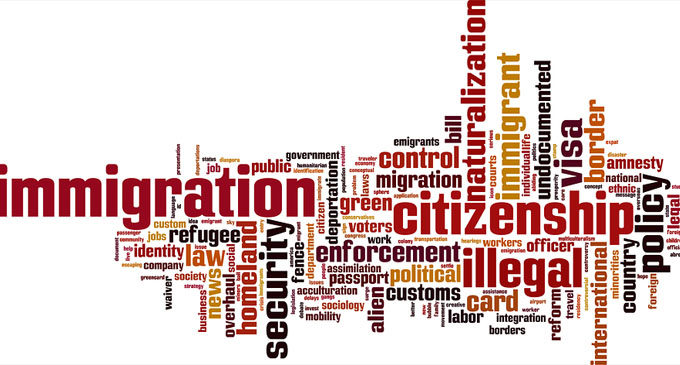Commentary: I had to teach my kids about immigration: You may have to as well

By Allie Mondell
Immigration has always been an important part of American history. But today, it has become controversial – often laden with emotion and complicated by politics. But amid all the debate these days, parents still have an obligation to teach their children the simple truths about immigration, which today’s controversies overlook.
As a mother to three young boys, I’ve felt prepared in tackling tough questions like “What happens when you die?” and “Where do babies come from?” But a recent conversation with my son reminded me that our children are absorbing political rhetoric, emotion and ideas from the world around them. It was a conversation I wasn’t prepared for.
My son came home from school and said, “Mom, people that aren’t from here shouldn’t come to our country.” He heard this from his classmate who also told him there is a big wall to keep people from coming in. I was shocked. He was four years old at the time.
In some sense, this event was inevitable. Immigration is almost always in the news, on the radio and debated on TV. How could I not expect my son to pick up something from someone along the way? No matter how much we may try to protect our kids from politics, we can’t keep them in an information bubble. So, when my son told me about all the bad people trying to get into this country, I was reminded we as parents have to be intentional about not just protecting our children, but teaching them too.
But how can you teach your kids something as complex as immigration in the United States at such a young age? Everyone wants to make immigration into a contentious political issue. How can you cut through the noise and speak truthfully?
In my own case, I applied lessons I’ve learned from teaching my kids about my own Christian faith. Christian history, theology and ethics can be incredibly complex. When teaching my boys, I look to Jesus’ words when asked what the most important commandment is: “Love the Lord your God with all your heart, all your soul, and all your mind. And the second is this: love your neighbor as yourself.” Those simple truths get to the heart of the matter. Immigrants and refugees are our neighbors; therefore, we should love them. My son could understand that.
At the heart of immigration are immigrants themselves. These are people who are often fleeing persecution, violence or hardship to seek a better life for themselves and their families. At the end of the day, immigrants are just people who want to come to America for safety, shelter and a chance at a brighter future. That is what I tried to explain to my son in that moment. Immigrants are kids just like him who have moms and dads who love them, friends they like to play with, and special teddy bears they hold tight at night.
Since then, I’ve tried to be intentional about discussing this topic with my kids. We’ve talked about what it would feel like to leave our home and have to start somewhere new. On another occasion, I asked my boys if they are good at following the rules. They said yes. Then I wrote a rule on a piece of paper and asked if they could follow that rule. They could not, because they can’t read yet. I asked them if they could follow the rules if there were hundreds of rules and they all kept changing. They shook their heads. I told them this is how it is for many immigrants who want to follow the rules, but have a hard time because of language and the vast amount of complicated laws.
“How can we help them?” one asked. We can change the narrative of hate and fear. One thing this experience has made abundantly clear to me is that parents can’t afford to ignore the difficult or controversial topics. If we aren’t teaching them, then someone else is.
Politics in America doesn’t look like it will get simpler, easier or more civil in the days to come. But in the end, issues like immigration aren’t political issues at all when you break them down into their simplest parts. Every day our children are learning to forget that immigrants are no different than they are. As parents, we can and we should help them to unlearn these errors.
Allie Mondell is an advocacy organizer for Choose Welcome and resides in North Carolina with her husband and three sons.









